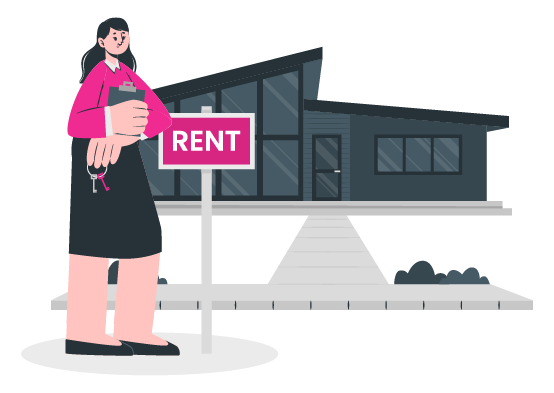Dealing with a tenant who stops paying rent can be a stressful and challenging situation for landlords in Ireland. Rent arrears not only impact cash flow but also create legal and administrative burdens. Understanding your rights and the legal steps involved is crucial to resolving the issue efficiently and minimising financial losses. In this guide, we’ll explore what landlords in Ireland can do when facing rent arrears, ensuring compliance with Irish tenancy laws.
Understanding Tenant Rent Arrears in Ireland
Non-payment of rent is one of the most common challenges landlords face. In Ireland, landlords have specific legal rights and obligations when dealing with rent arrears. While tenants may miss payments due to financial difficulties, personal issues, or disputes, landlords must follow a structured process to address the situation legally and professionally. Acting swiftly and maintaining proper documentation can help prevent prolonged disputes and unnecessary complications.
Steps to Take When a Tenant Stops Paying Rent
1. Open Communication with the Tenant
The first step when a tenant misses a payment is to establish communication. A missed payment could be due to an oversight or temporary financial strain, and a direct but professional conversation can often resolve the issue quickly.
- Contact the tenant immediately to discuss the missed payment.
- Offer a grace period if the tenant is experiencing short-term financial difficulties.
- Document all communication, including emails and messages, for future reference.
2. Issue a Formal Rent Demand Notice
If the tenant does not respond or fails to make payment within the agreed timeframe, the next step is to issue a formal rent demand notice.
- This should be a written notice clearly stating the outstanding amount and a deadline for payment.
- The notice should be delivered via a trackable method, ensuring proof of receipt.
- Keep copies of all notices sent to the tenant in case further legal steps are required.
3. Follow the Legal Eviction Process
If the rent remains unpaid despite repeated attempts to resolve the issue, landlords may need to begin the legal eviction process. In Ireland, evictions must be carried out in compliance with the Residential Tenancies Board (RTB) regulations.
- A written notice of termination must be issued, outlining the reason for eviction and the notice period required by law.
- The length of the notice period depends on how long the tenant has been renting the property.
- Ensure that all documents are in order before proceeding, as any errors could invalidate the eviction.
4. Seek Mediation or Dispute Resolution
Before taking legal action, landlords can attempt to resolve the matter through mediation. The RTB provides a dispute resolution service that can help facilitate a fair agreement between landlords and tenants.
- Mediation can be a cost-effective alternative to court proceedings.
- If both parties agree, a legally binding agreement can be reached to settle the unpaid rent.
- If mediation is unsuccessful, a formal dispute can be filed with the RTB.
5. Taking Legal Action
If mediation and direct communication fail to resolve the rent arrears, landlords may need to take legal action to recover the unpaid rent.
- The RTB can adjudicate on rent arrears cases and issue legally binding determinations.
- In some cases, landlords may need to seek compensation through the small claims court or higher courts if the debt is substantial.
- Legal representation may be required if the case becomes complex.
How FindQo.ie Can Help Landlords

Managing rental properties effectively requires access to the right resources and tools.
- Private agents can list two properties for free, reducing costs for individual landlords.
- Agencies can benefit from a two-month free trial, making it easier to market properties to potential tenants.
- FindQo.ie also offers tools that help with property viewing scheduling.
By using platforms like FindQo.ie, landlords can streamline their rental processes and reduce the risks associated with non-paying tenants.
Handling a tenant who stops paying rent in Ireland requires a structured and legally compliant approach. From maintaining open communication to seeking mediation and legal intervention if necessary, landlords must act swiftly and professionally to protect their interests. By understanding Irish tenancy laws and leveraging resources like FindQo.ie, landlords can effectively manage their properties and reduce the likelihood of rent arrears in the future.

